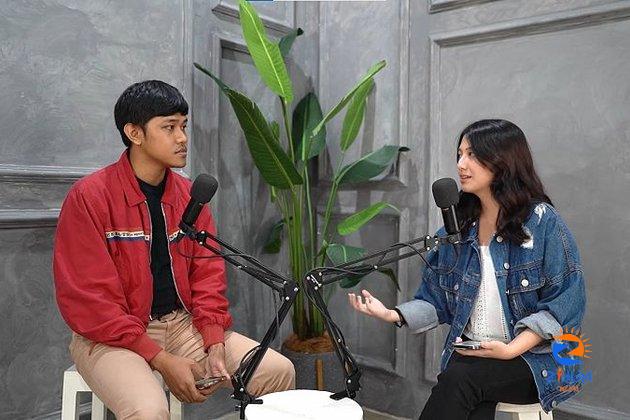
[ad_1]
How to get the young involved in current affairs? Politicians shy from the question fearing Gen Z’s latent power could shrink their authority. Duncan Graham recommends Indonesia.
THE QUEUE WAS LONG, wide, pressing, hot and young. It spilled beyond the five-star hotel’s car park and forecourt. Waiters chatted excitedly about the day ahead, surely a Taylor Swift concert?
But the jolliness was jarred by the walk to the venue past ranks of pavement traders selling Palestine flags ready for the street protests to come.
For this was dawn on a Saturday in Jakarta this month and the masses had come to a show with the turn-off title ‘From Non Alignments to Creative Alignments’. It featured foreign affairs, international politics and fixes for an ailing world; with wars in Gaza, Ukraine and Myanmar, there was no need to fossick for issues.
Why did an estimated ten thousand teens willingly spend a full Saturday getting involved in international relations with the sort of enthusiasm displayed for the Coldplay concert a fortnight earlier?
Here’s the formula: Hire a plush monster hall and make tickets free. Get an entrepreneur with headline acts on speed dial, then let him loose unconstrained by the fear and caution of a government department or university admin.
Then it supposedly becomes ‘the biggest grassroots foreign policy group in the world …determined to form a large international relations community with mature and sensitive insights on bilateral, regional, and global issues’.
The go-to guy is Dino Patti Djalal, 58. If Indonesia used silver spoons this fella was born with a mouthful.
‘No more thoughts and prayers’: Students protest gun violence
He entered the world in Belgrade where his father Hasjim Djalal was a diplomat and later deputy foreign minister. The lad was schooled in the U.S., Canada and the UK where he scored a PhD at the London School of Economics.
In 2010, as U.S. ambassador, he won fame by inspiring the diaspora to plug back into the nation they’d fled last century when Soeharto was president. But his ambition flew him too close to the sun; he quit Washington for a pitch at the presidency in the 2014 election.
His pedigree and qualifications failed to move the oligarchs who bankroll parties in Indonesia; they prefer clerics, business tycoons and old soldiers to intellectuals too canny to control. Indonesia’s Icarus hit the ground hard and learned a discomforting truth: openings for used diplomats are rare.
But he had enough money to start an enterprise, rightly reckoning that the student idealism that had driven out the autocratic Soeharto in 1998 and steered in democracy was floundering to find the right map to power ahead.
University courses in politics were pedestrian: why not make them energetic and accessible?
Together with academic and policy adviser Dewi Fortuna Anwar, who got her PhD from Monash and has a CV longer than this story, they started the Foreign Policy Community of Indonesia (FPCI).
FPCI calls itself a ‘non-politic and independent foreign policy organisation to discuss and introduce international relations issues’ to diplomats, government officials, academics and students, business people and journalists.
That sounds positive, but impotent without the clout of the Republic’s Foreign Affairs Department. Despite this handicap, the FPCI seems to have captured interest by running workshops and seminars.
The presenters wear t-shirts and don’t peer down their spectacles at uppity students. Lecturers are engaging; they’re locals but overseas trained.
In an earlier interview with this writer, he said:
At the annual conference this month the bill-toppers included two of the three presidential candidates: former governors Anies Baswedan and Ganjar Pranowo. Cashiered former general and alleged human rights abuser Prabowo Subianto was invited, agreed, and then pulled out.
Dino asked the polis to address issues but not to campaign, which is like urging a fish not to swim.
Ganjar appeared online from West Papua but Anies turned up and was mobbed by fans. Unlike the average plodding politician, he cracked jokes, exhausted the local media with his availability and avoided the booby-trap question which could have exploded his hopes on the spot.
Pro-Palestine rally gives politicians fuel for anti-protest agenda
Who’s his most admired figure? A magazine editor who once published a readers’ poll that put the Prophet in seventh place and who spent five years in jail for blasphemy. Anies got his sequence right, then added Nelson Mandela and Mahatma Gandhi.
Others on stage during the day included a pondering of international professors telling of their fears and hopes for relations with China. All spoke in English as did many in the audience, students using the show as a chance to dazzle friends.
Ten embassies have caught on to the opportunities running stands promoting their universities. Australia sells quality and proximity, its rivals add scholarships and accommodation. Academic life used to be marketed as austere and sober, now it’s offered as intoxicating.
To lighten the mood between sessions on the failure of diplomacy to keep fighters in hangars and drones unarmed, a try-hard lady filled in with stand-up comedy. Hopefully, she’ll refine her act before next year’s event.
By then there’ll be a fresh president and government. The new mob may not be so tolerant of Dr Dino and his bid to poke the noses of the people into the affairs of the State.
Young people in the West stand in solidarity for a Gaza ceasefire
The death toll in Gaza has now reached around 12,000.
Duncan Graham is an Australian journalist living in East Java.
Related Articles
[ad_2]